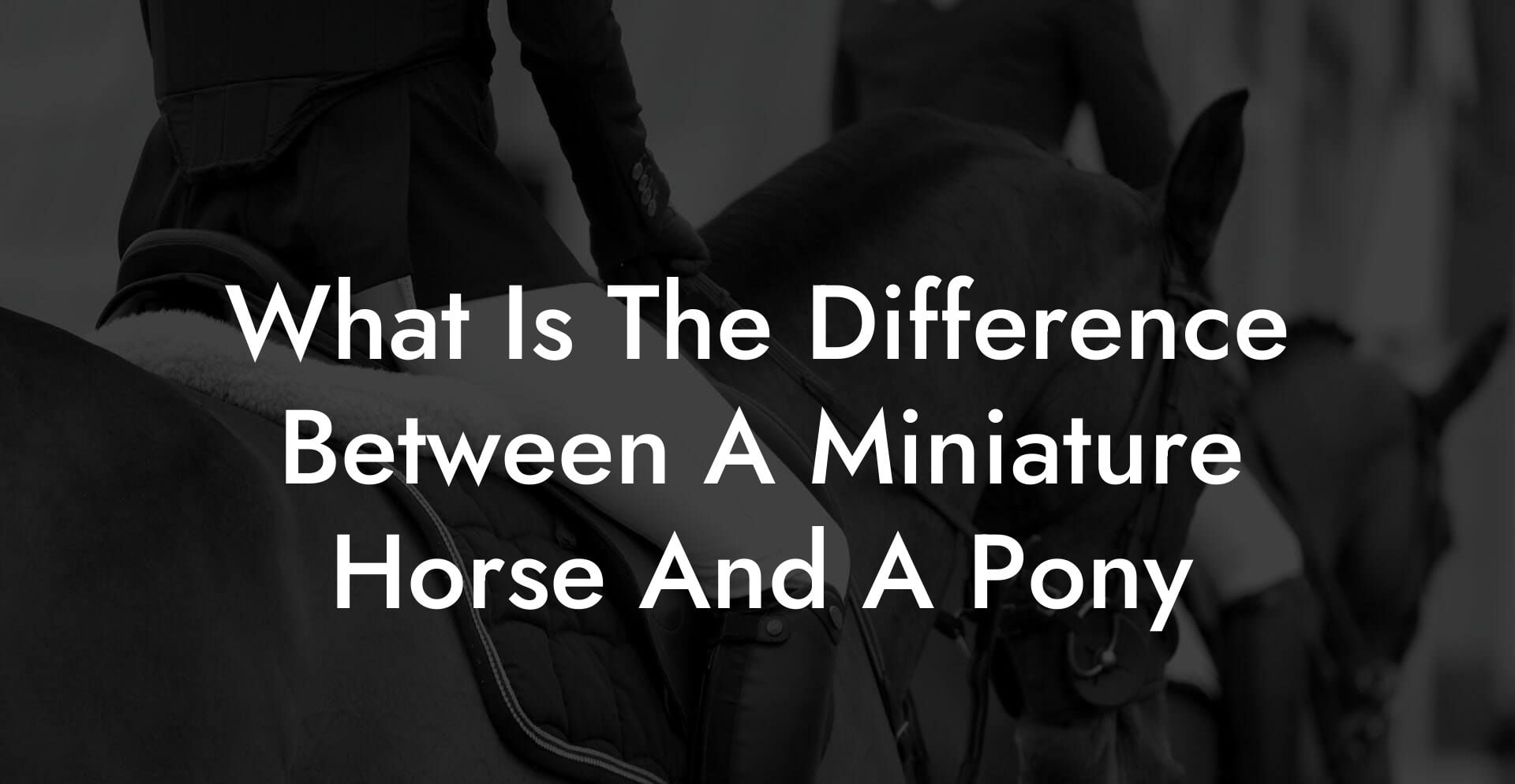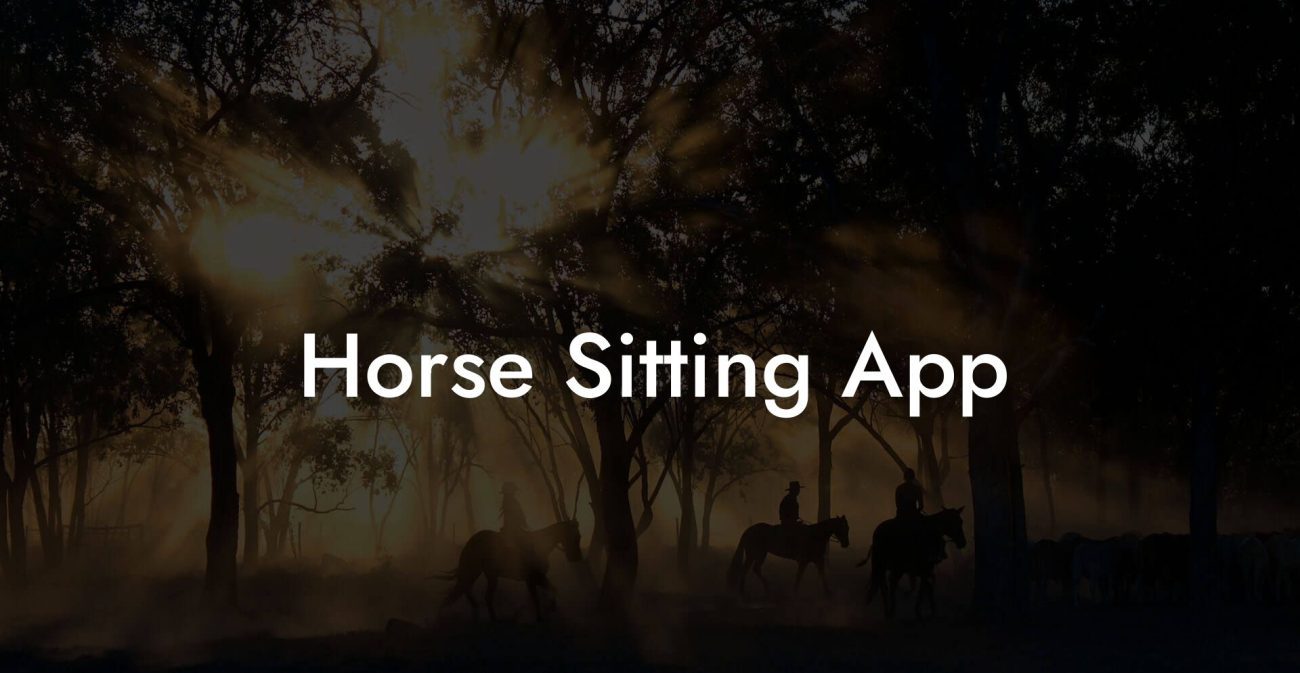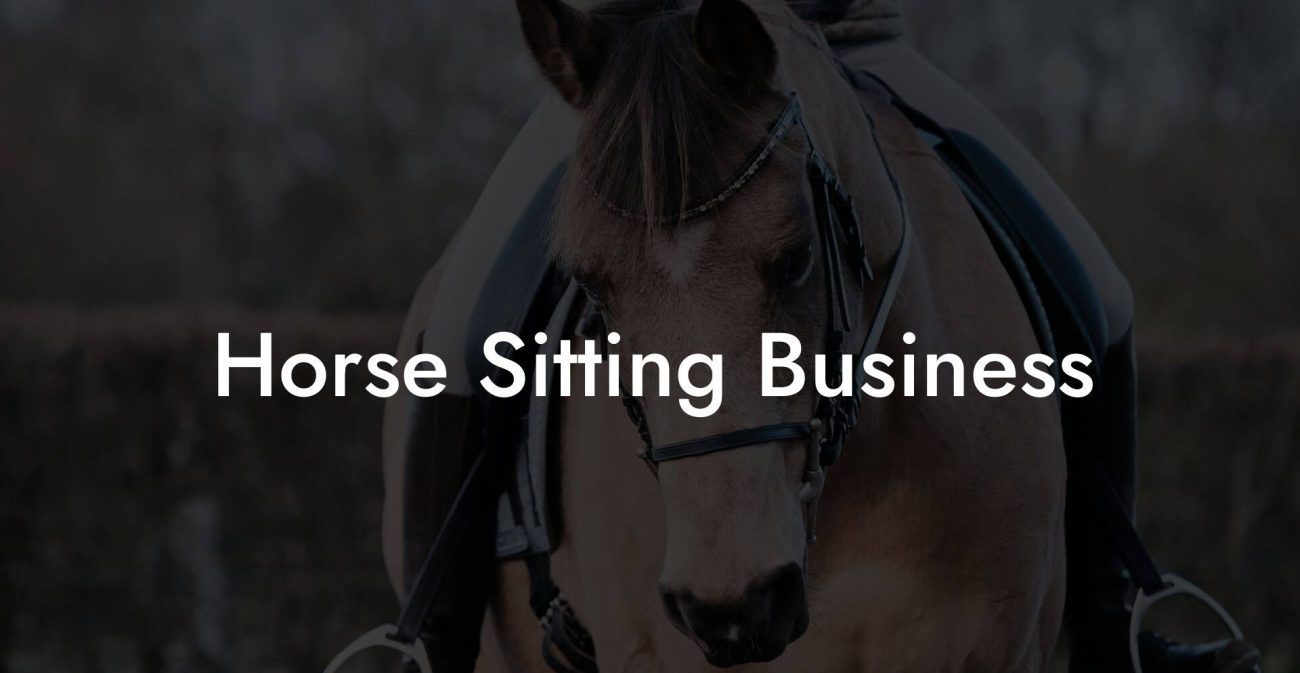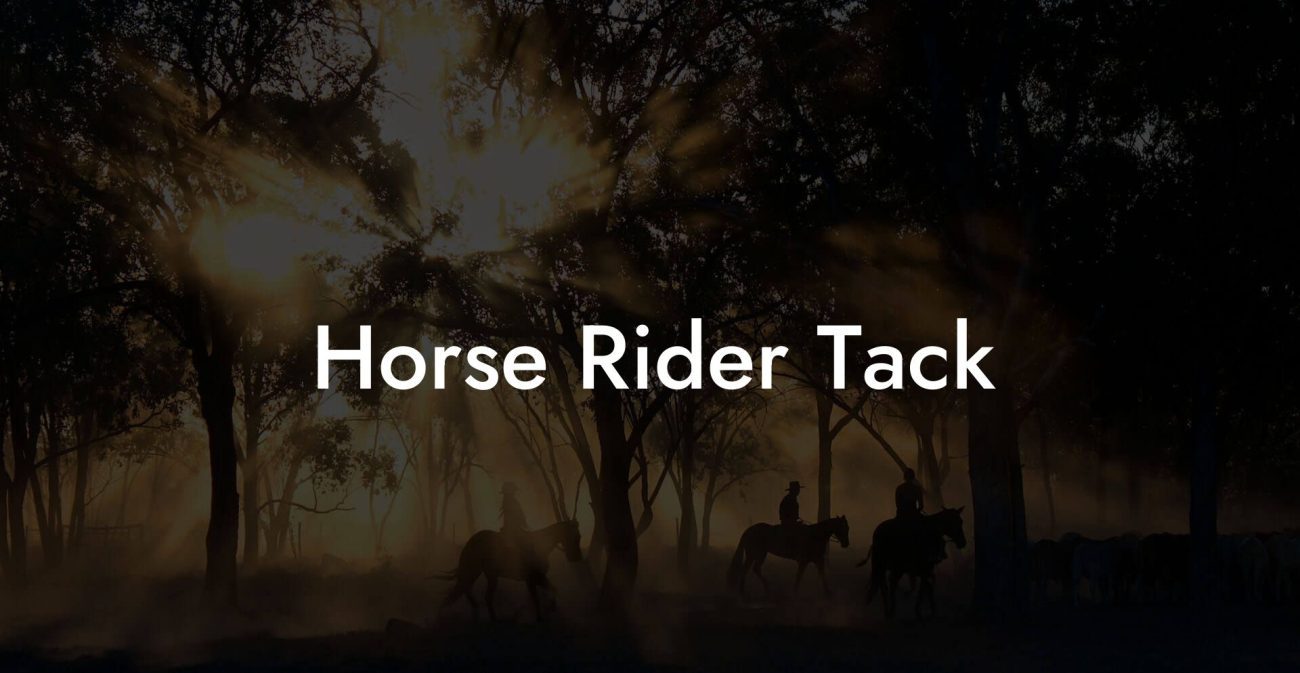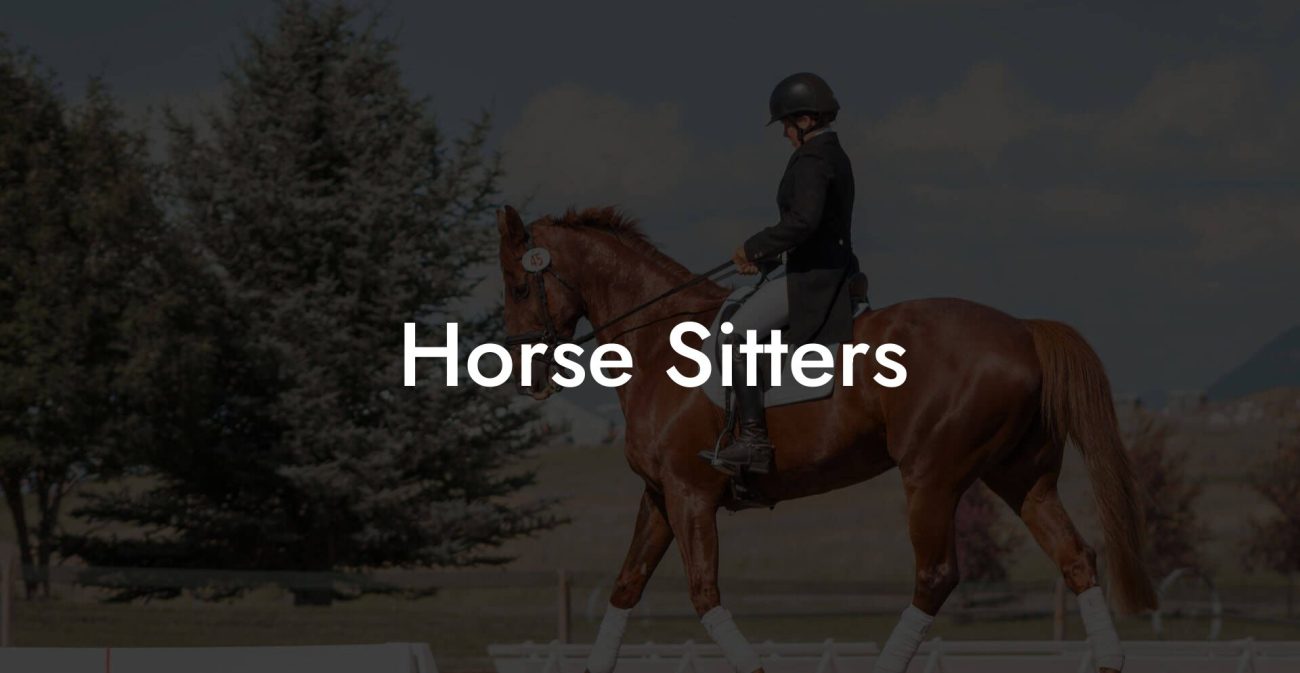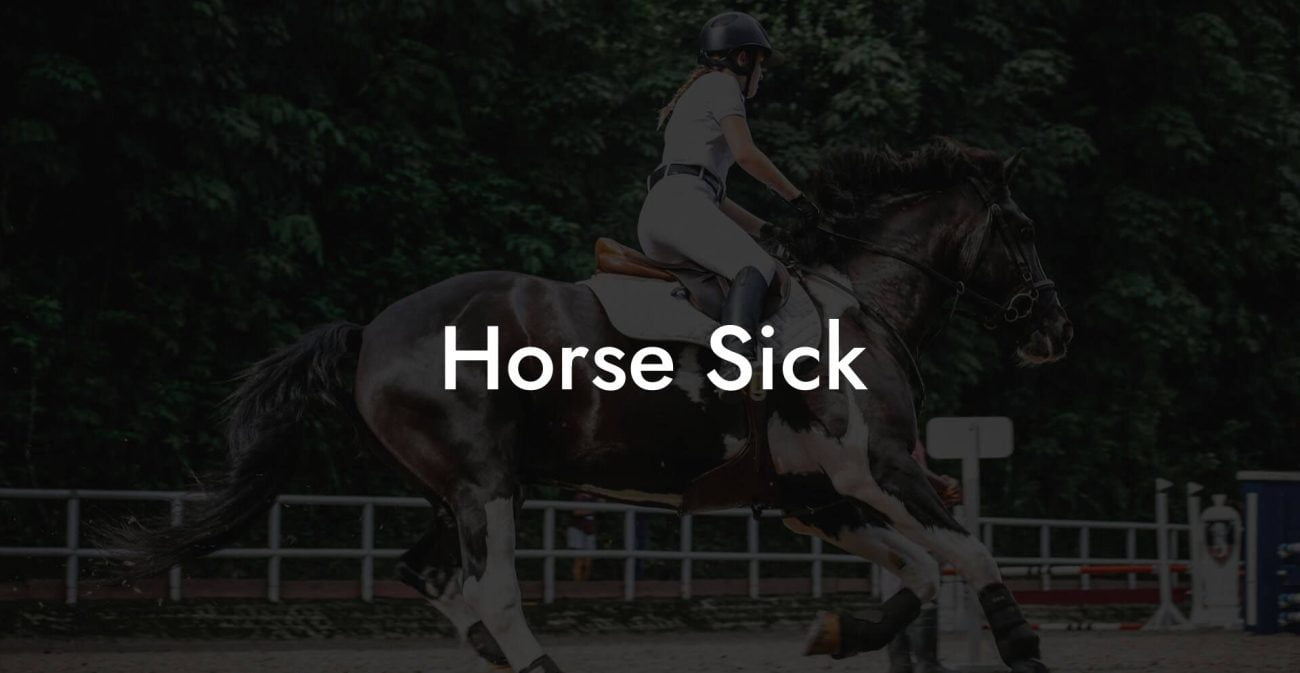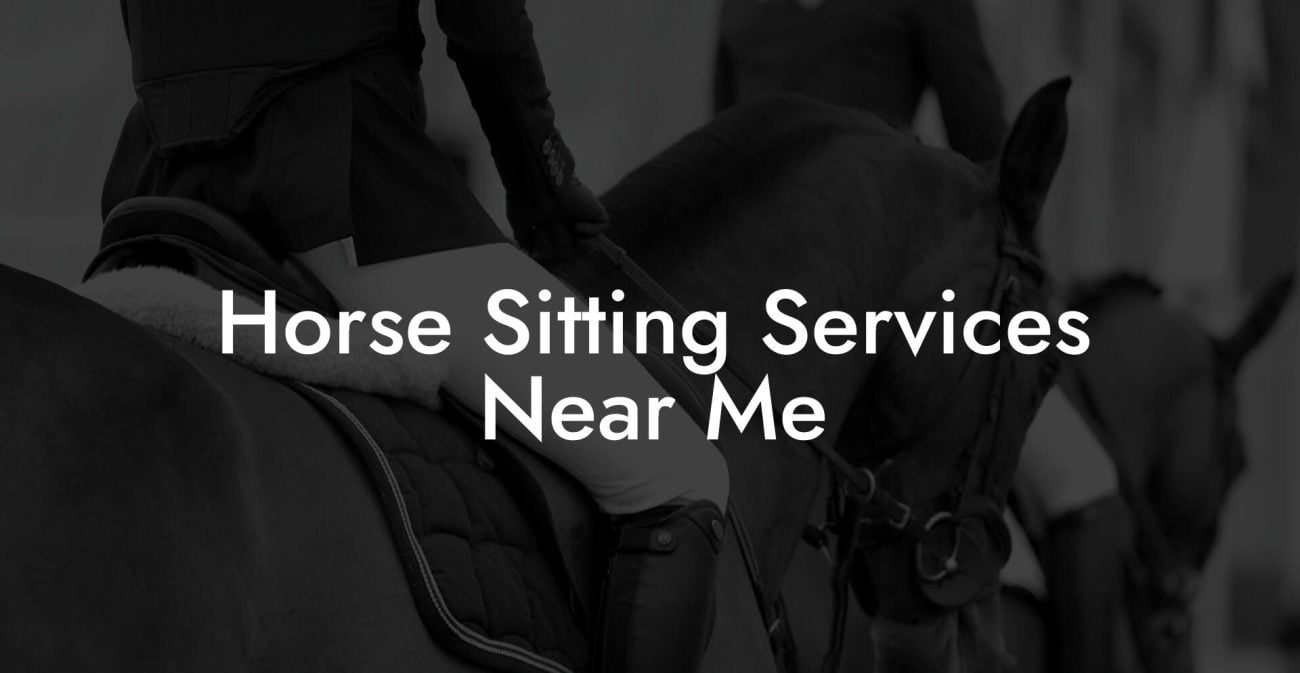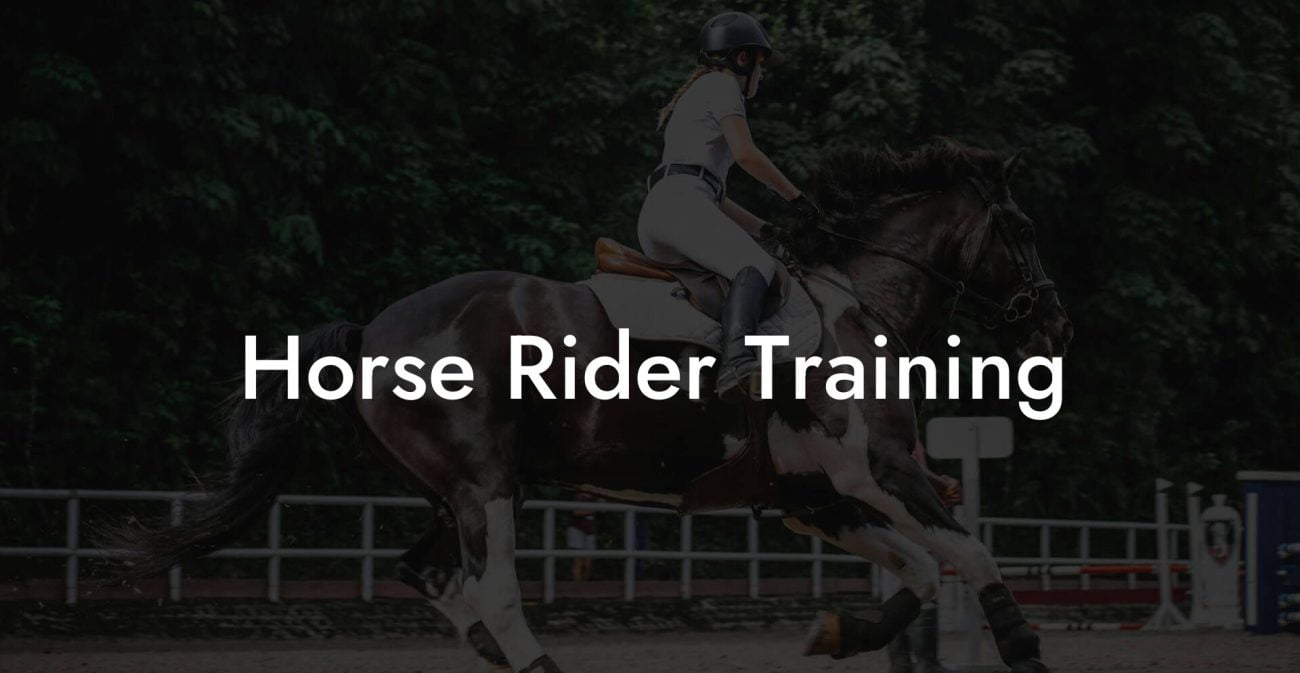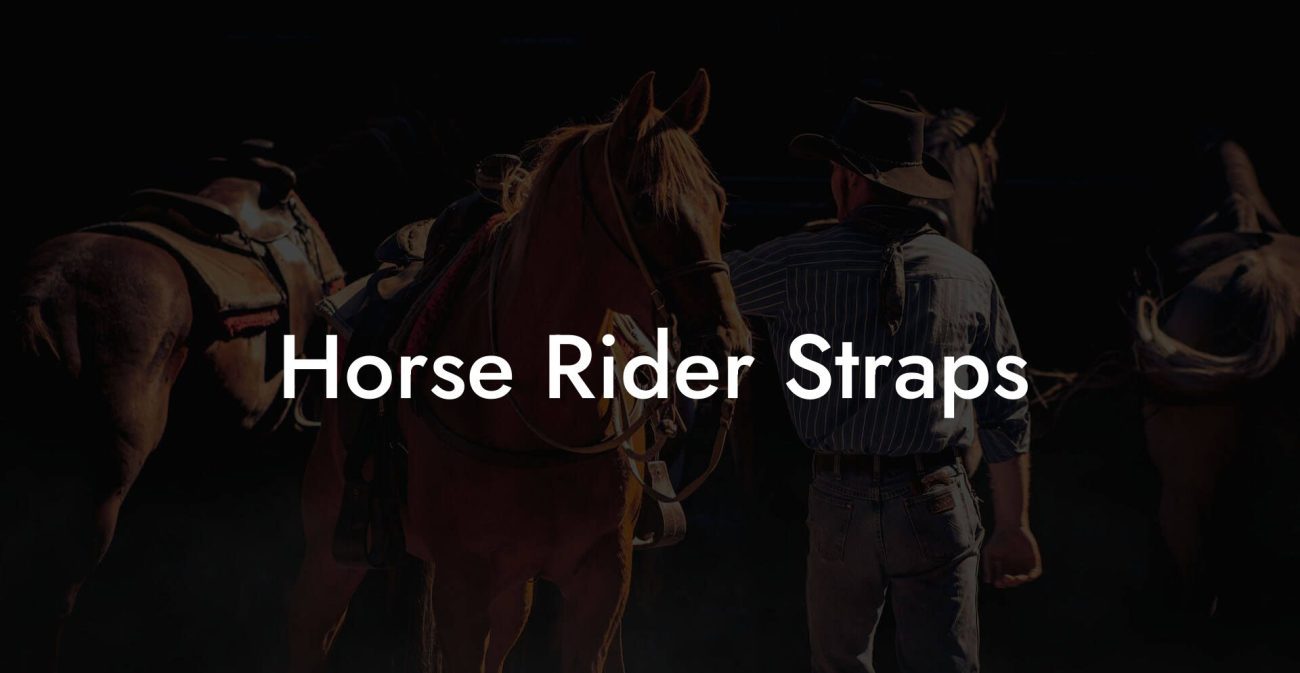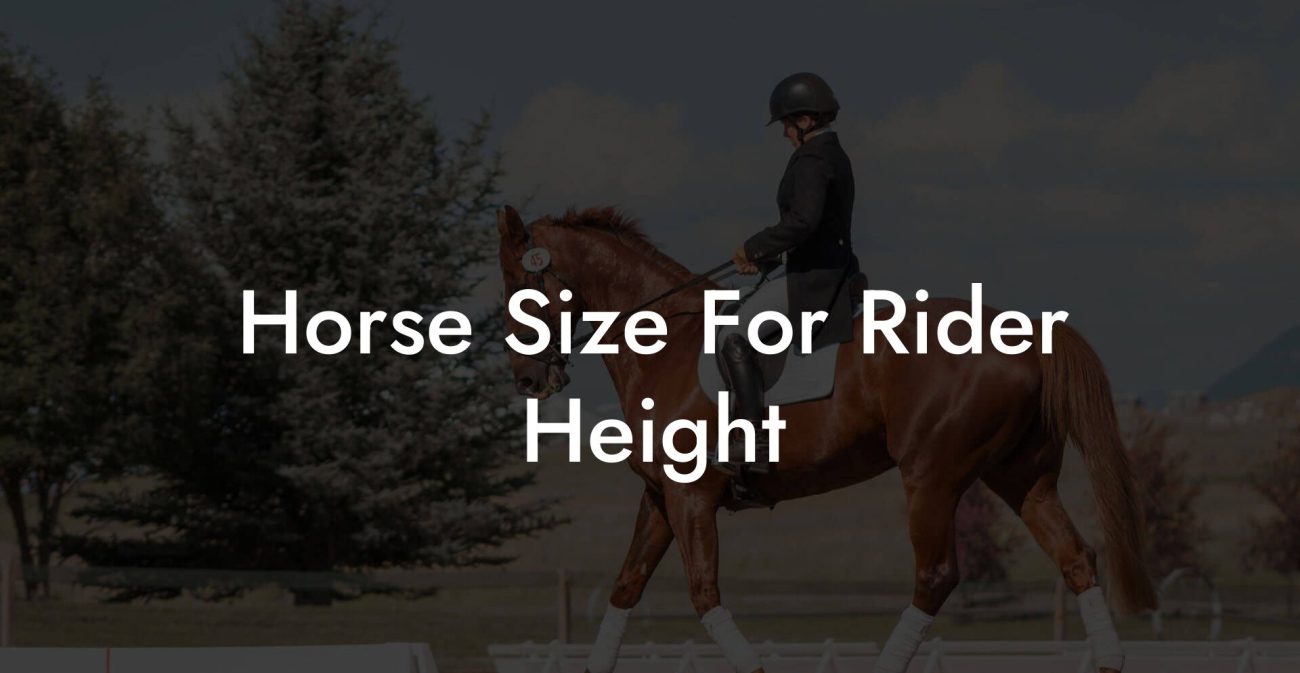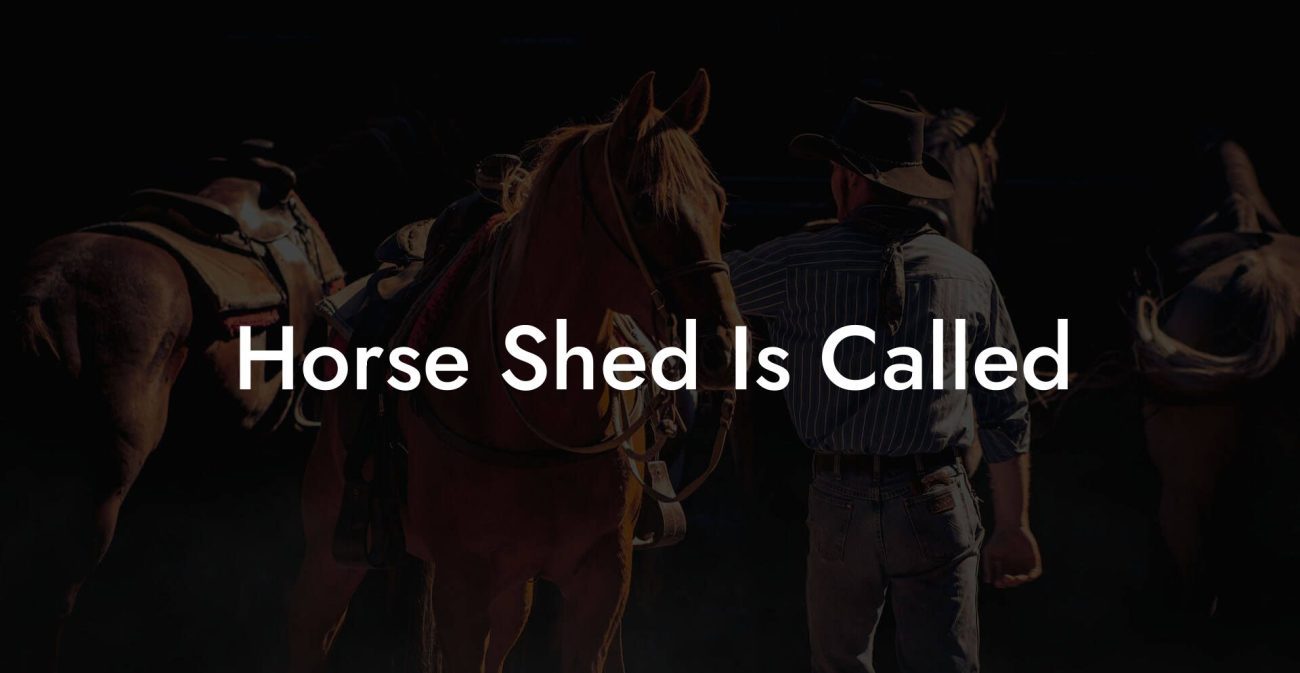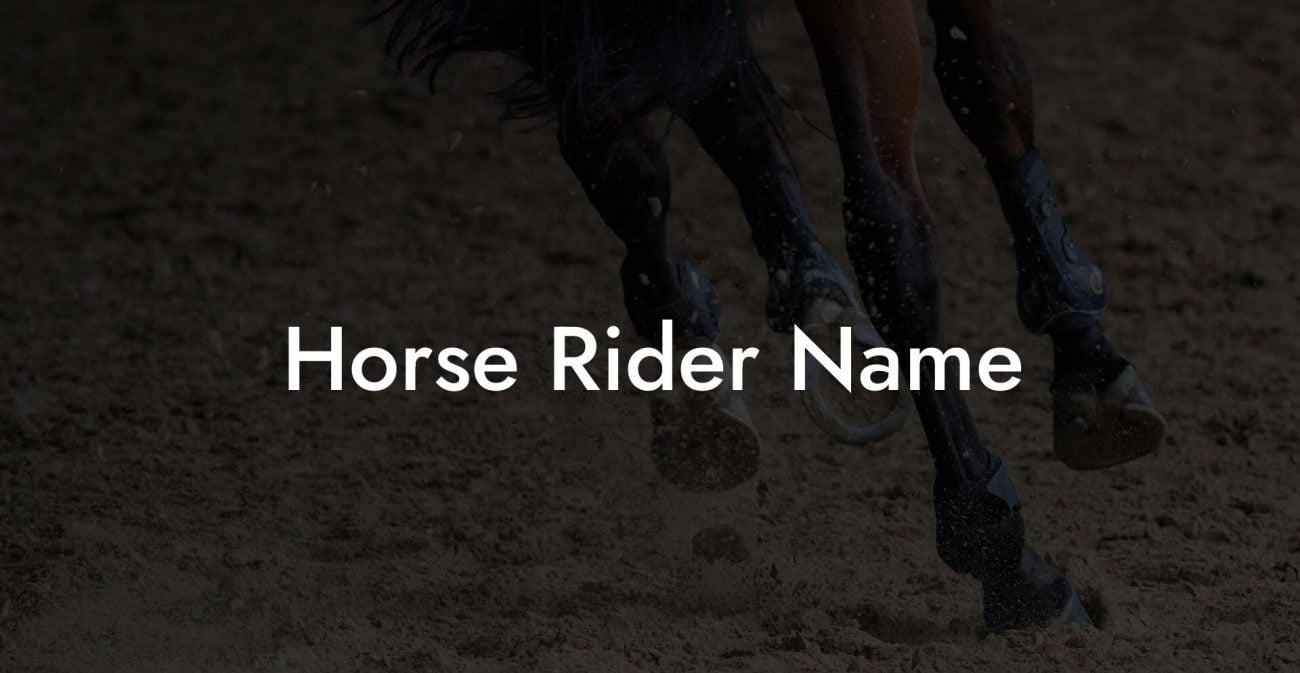Ever caught yourself marveling at the quirky charm of miniature horses and wondering, “Wait a minute, aren’t they just ponies in disguise?” If you’ve ever strolled past a petting zoo or giggled at a viral video of these pint-sized equines, you’re not alone. The debate over whether a miniature horse is merely a pony in a clever costume has sparked endless discussions online and in the paddocks. Today, we’re diving headfirst into the enchanting world of equine wonder, exploring the differences (and surprising similarities) between miniature horses and ponies, and how to care for these delightful creatures in a way that resonates with Gen-Z and millennial horsemanship enthusiasts.
Quick Links to Useful Sections
- Understanding the Basics: So, What Exactly Are Miniature Horses?
- Meet the Ponies: A World Rich with Variety
- Physical and Genetic Distinctions: Size Isn’t Everything
- Temperament and Personality: More Than Just Cuteness
- Care and Maintenance: Feeding, Grooming, and Beyond
- Training and Handling: Bridging the Gap Between Fun and Function
- History and Breed Standards: How They Came to Be
- Common Myths and Facts: Debunking Equine Misconceptions
- Choosing Your Equine Companion: What’s Right for You?
- Resources and Community Support: Your Next Steps
- Living the Equine Lifestyle: Integrating Your Miniature Horse or Pony Into Daily Life
- Advanced Equine Nutrition: Fueling Little Bodies for Big Adventures
- Maintaining Mental Health and Well-Being: The Equine Connection
- Equine Enrichment: Creative Ideas to Stimulate Your Little Companion
- Equestrian Fashion and Style: Celebrating Culture, Creativity, and Care
- Frequently Asked Questions About Miniature Horses and Ponies
- Your Journey Into the World of Miniature Horses and Ponies
Understanding the Basics: So, What Exactly Are Miniature Horses?
Miniature horses are not just small horses; they are a unique and distinct breed known for their proportioned bodies, gentle demeanor, and an unmistakable elegance that belies their compact size. Unlike some pony breeds that might have a more rugged, stout appearance, miniature horses are bred to resemble full-sized horses, scaled down to a manageable size. Their breed standards emphasize harmony between their head, body, legs, and overall conformation, resulting in a pet-sized horse that maintains the beauty, grace, and athleticism of its larger relatives.
With a height typically reaching no more than 34-38 inches at the withers, miniature horses are prized for their ideal stature and engaging personality. They were originally bred for companionship, driving, and even as show animals, and today, they continue to win hearts in equestrian events, therapy programs, and as family pets. Their refined features combined with their robust build make them a fascinating study in scale and proportion, a miniature masterpiece of equine design.
Care for a miniature horse blends the knack for traditional horse care with some specialized considerations. Their smaller size means that certain aspects, like feeding and housing, require adjustments to prevent obesity or undernourishment. Plus, their friendly nature invites plenty of interaction, making proper grooming and exercise key to maintaining both their physical health and mental well-being.
Meet the Ponies: A World Rich with Variety
Ponies are often thought of as “small horses,” but this simple definition hardly does justice to the rich mosaic of pony breeds found around the globe. From the sturdy Shetland to the dappled Welsh and the rugged Connemara, ponies come in a myriad of forms, each with unique characteristics molded by their environments and historical roles. Unlike miniature horses, which are bred for a specific, scaled-down aesthetic of the full-sized horse, ponies have evolved into a diverse group that adapts to local conditions and needs.
Typically, ponies stand under 14.2 hands high (with a hand equaling 4 inches), though some breeds may be a bit taller. Their genetic lineage is steeped in history, often reflecting centuries of adaptation to harsh climates, poor-quality forage, and the demands of farm or work life. This hardiness translates into robust physiques, resilient temperaments, and an ability to thrive in challenging conditions.
Caring for a pony can be just as involved as looking after a full-sized horse. Even though they might be smaller, ponies require balanced nutrition, regular exercise, and ample mental stimulation. Their working-dairy history and long-standing role as a companion animal in many cultures have carved out a niche where health, strength, and community are paramount.
Physical and Genetic Distinctions: Size Isn’t Everything
At first glance, the differences between miniature horses and ponies might seem to be purely a matter of height, but dig a little deeper, and you’ll find distinctions that extend into the realms of genetics, body structure, and even personality. While both are undeniably adorable and full of character, miniature horses are, by definition, true horses that have been selectively bred to be small, yet carry the proportions and refined features of their larger relatives.
Ponies, on the other hand, are bred with an emphasis on hardiness, stamina, and functionality. Their build is often more compact with thicker manes, tails, and a stockier frame, a reflection of their heritage living in less-than-ideal conditions. It’s not unusual to see a pony with a robust physique, strong muscles, and an energetic spark that makes them excellent for work and riding.
However, the line between miniature horses and ponies isn’t always crystal clear. Some miniature horses may exhibit pony-like tendencies in behavior or physical traits, given that both are equids with shared ancestry. Yet, when you consider breed standards, genetic backgrounds, and conformation, the miniature horse stands apart as a refined, scaled-down marvel of the equine world.
For those interested in equine genetics, it’s fascinating to note that selective breeding plays a crucial role here. Miniature horse breeders prize proportional scale while ensuring a refined look reminiscent of full-sized horses. Pony breeders celebrate durability and a rugged charm, often influenced by generations of horses adapting to specific climates and work demands. These differences, albeit subtle, require tailored care regimes and nutritional plans, something every equine enthusiast should keep in mind.
Temperament and Personality: More Than Just Cuteness
One of the most enchanting qualities that set miniature horses apart is their temperament. They’re known for their gentle, friendly nature and their ability to connect with humans. Many owners describe miniature horses as having a laid-back yet spirited personality, always ready for a cuddle or to matter-of-factly voice their opinion with a swish of their tail. Their social demeanor makes them excellent companions for therapy, children, and anyone looking for a low-key friend with animal magnetism.
Ponies, while equally endearing, often carry a more energetic and sometimes stubborn personality. Their smaller size is often offset by a big attitude, reflective of their survival instincts honed over centuries. A bit of spirited mischief paired with a deep loyalty, pony personalities can range from gentle and patient to cheeky and bold, making them a bit of a handful for first-time equine caretakers.
Both miniature horses and ponies thrive on interaction, but their different temperaments mean that training approaches need to be customized. Miniature horses may respond well to gentle, consistent training methods that respect their calm demeanor. Ponies, by contrast, may benefit from training that channels their energy into structured activities like agility courses, riding lessons, or even creative playtime that includes obstacle courses and puzzles.
For the modern equine lover, knowing your animal’s personality is half the battle in planning a care regimen. An equine partner’s disposition affects everything from daily interaction to exercise choices, diet planning, and even the design of their living space. Whether you’re hosting a mini horse tea party or organizing a pony playdate, understanding these personality nuances is key to a harmonious life together.
Care and Maintenance: Feeding, Grooming, and Beyond
Now that we’re well acquainted with the basic differences, let’s talk about maintaining these pint-sized equine wonders. Despite their differences in size, both miniature horses and ponies benefit from robust care routines, but the specifics can vary. Feeding, grooming, exercise, and healthcare needs should be adjusted to suit their unique physiologies.
Feeding: Miniature horses have smaller stomachs, so they require diets that are carefully portioned. Their forage-based diets should include high-quality hay and grass, with supplemental feeds provided as needed to maintain a healthy weight. Overfeeding is a common pitfall that can lead to obesity and metabolic issues. Ponies, with their natural hardiness, might seem like they can munch away with less concern, but these majestic creatures are equally prone to weight gain if not properly managed. Both require clean, fresh water at all times, and regular monitoring of body condition scores is essential.
Grooming: Grooming isn’t just about keeping them looking Instagram-ready (although that certainly helps!). For miniature horses, frequent grooming sessions are crucial for keeping their fine coats in tip-top condition and bonding with their human caregivers. Their manes and tails, which can rival those of a full-sized show horse, require detangling, washing, and occasional trimming. Ponies might sport a more rugged, weather-beaten coat that still benefits from regular brushing to remove dirt and prevent skin issues.
Exercise and Mental Stimulation: Despite their small size, miniature horses need plenty of exercise to maintain muscle tone and prevent boredom. Daily walks, turnout time in a secure pasture, and even interactive play sessions help keep them happy and healthy. Ponies, known for their energetic disposition, may require more structured exercise routines to channel their robust energy. Agility courses, obstacle challenges, and even simple games can keep their minds sharp and bodies fit.
Healthcare and Veterinary Needs: Regular check-ups with an equine veterinarian are essential for both miniature horses and ponies. Preventative care, including vaccinations, dental care, and hoof maintenance, must be part of your regular schedule. Their small stature means that even minor health issues should be addressed promptly to avoid complications.
Whether you’re a seasoned equine caretaker or just beginning your journey, understanding and catering to these care differences will ensure your little equine friend leads a vibrant, healthy life. With the right balance of nutrition, exercise, grooming, and veterinary care, both miniature horses and ponies can thrive, offering endless joy and companionship.
Training and Handling: Bridging the Gap Between Fun and Function
Training your equine companion isn’t just about teaching tricks or ensuring good behavior, it’s also about building a relationship based on trust, communication, and mutual respect. Both miniature horses and ponies benefit from training regimes that are tailored to their size, temperament, and natural instincts.
For miniature horses, training often involves gentle, positive reinforcement techniques. Their calm demeanor means they respond well to consistent cues and rewards. Whether you’re training them for therapeutic visits, participation in breed shows, or simply ensuring they’re well-behaved in a home setting, using gentle yet firm methods fosters respect and a harmonious bond.
Ponies, with their spirited and sometimes mischievous nature, might require a bit more creativity in training. Techniques that incorporate fun, such as obstacle courses, interactive games, and even group training sessions, can channel their energy into positive outlets. Remember, consistency is key; establishing a routine helps your pony understand its role in the herd (or in your living room!).
Incorporating modern technology can be a game-changer here. From wearable fitness trackers that monitor activity levels to smartphone apps designed for equine training programs, there’s a plethora of tools available to ensure your training methods are effective and engaging. These digital aids can help you track progress, record milestones, and even share your pet’s achievements with an online community of fellow equine enthusiasts.
Ultimately, training is as much about the human as it is about the horse or pony. Patience, humor, and a willingness to adapt your methods based on your animal’s feedback are essential traits. Whether you’re coaching a miniature horse to trot gracefully or a pony to navigate a mini obstacle course, the journey is filled with laughter, small victories, and the occasional playful stubborn moment.
History and Breed Standards: How They Came to Be
To truly grasp the subtleties between miniature horses and ponies, it’s helpful to take a step back and explore their fascinating histories and breed standards. Miniature horses emerged as a distinct breed in the 20th century, bred specifically to be a “small horse” that nonetheless retained the proportional elegance of a full-sized horse. With roots in various horse breeds from Europe and the United States, their development was intentional, aiming to create a companion animal that was both practical and enchanting.
Pony breeds, in contrast, have evolved naturally over centuries, adapting to rugged environments and the demands of labor. Regions like the British Isles, Iceland, and the mountains of Spain have given rise to ponies as hardy survivors whose characteristics were honed by nature and necessity rather than strict human selection for aesthetics. Their diverse genetic backgrounds have contributed to a variety of sizes, temperaments, and capabilities, making each pony breed uniquely suited to its environment.
Breed standards for both groups are codified by various equine organizations and registries. For miniature horses, the standards emphasize overall proportionality, ensuring that every part from head to hoof is in harmony with the animal’s small stature. In contrast, pony standards often look at traits like durability, agility, and temperament, reflecting the working lives these animals have led across generations.
Understanding these origins not only deepens your appreciation for these animals but also informs your approach to care and training. Each breed’s history is a lesson in evolution, adaptation, and the timeless bond between humans and equines.
Common Myths and Facts: Debunking Equine Misconceptions
Like any beloved animal, miniature horses and ponies are surrounded by a host of myths and misconceptions. Let’s bust a few common ones that even seasoned equine aficionados might have heard on occasion.
-
Myth 1: Miniature horses are just “small ponies.”
Fact: Miniature horses are true horses bred to a smaller scale, following breed standards that emphasize proportionate features, refined movement, and a gentle demeanor. They are not simply shrunk-down ponies; they have their own distinct lineage and purpose.
-
Myth 2: All ponies are equally stubborn.
Fact: While some pony breeds are known for their spirited independence, many ponies are highly trainable, gentle, and cooperative. Much depends on the individual animal, its upbringing, and training methods used.
-
Myth 3: Miniature horses require the same amount of food as full-sized horses.
Fact: Due to their smaller size, miniature horses have different nutritional needs. Overfeeding can lead to obesity and metabolic issues. A balanced, portion-controlled diet is essential.
-
Myth 4: Ponies are low-maintenance because they’re small.
Fact: Despite their size, ponies require extensive care, including regular grooming, tailored nutrition, and proper exercise. Their hardy nature doesn’t mean they can skip on care.
Dispelling these myths not only ensures that you approach your miniature horse or pony with the right care mindset but also helps you join a community of informed equine enthusiasts who celebrate knowledge over assumption.
Choosing Your Equine Companion: What’s Right for You?
Whether you opt for a miniature horse or a pony, choosing the right equine companion is a personal journey that should align with your lifestyle, space, and level of commitment. Consider your daily routines, the amount of time you can dedicate to exercise and grooming, and the type of environment you can provide.
Miniature horses are ideal if you’re looking for an animal that embodies the grace and stature of a full-sized horse in a compact form. Their calm nature makes them great for therapy work, outdoor companionship, and even indoor living if managed carefully. However, managing a miniature horse requires a commitment to specialized diets and enrichment activities that cater to their refined preferences.
On the flip side, if you’re drawn to an energetic, robust creature with a rich heritage, a pony might be your perfect match. Their spirited personality can bring endless joy and adventure, but they may also require more vigorous training and management to channel that energy productively.
Before making a decision, take the time to research local breeders, visit stables, and perhaps even volunteer at equine therapy centers or barns. Building a relationship with these animals starts with knowledge, and the right choice will complement not only your living situation but also your passions and lifestyle goals.
Resources and Community Support: Your Next Steps
Diving into the world of miniature horses and ponies opens up a vibrant, supportive community of animal lovers, breeders, trainers, and equine enthusiasts. Whether you’re seeking advice on proper care routines or merely looking to share your latest adventures on social media, endless resources are at your fingertips.
Start by tapping into online forums and social media groups dedicated to miniature horses and ponies. Platforms like Instagram and TikTok are bursting with creative content ranging from grooming tutorials to heartwarming rescue stories that resonate with millennials and Gen-Z alike.
Additionally, consider attending local equine events, breed shows, or community fairs where you can get up-close with these fascinating creatures. Many organizations also offer workshops and webinars on equine nutrition, behavior management, and innovative training techniques. Whether you’re connecting with expert veterinarians or fellow hobbyists, the shared passion for these equine beauties creates a supportive network that’s both informative and fun.
Finally, don’t underestimate the power of local libraries, agricultural extension programs, and equine specialty stores. Often, these resources hold the keys to deeper insights into the technical and historical aspects of miniature horses and ponies. Armed with this knowledge, you can better navigate the responsibilities of care and build meaningful relationships with your equine companion.
Living the Equine Lifestyle: Integrating Your Miniature Horse or Pony Into Daily Life
Owning a miniature horse or pony isn’t just about animal care, it’s a lifestyle. It’s about blending the rustic charm of equine living with modern sensibilities, creating a bridge between pasture-based life and urban sophistication. Picture lazy Sunday strolls in the park with your little horse friend, or a brisk morning trot that kickstarts your day with energy and a smile.
For many young equine enthusiasts, caring for a horse parallels trends in mindfulness and self-care. The rituals of grooming, feeding, and simply spending quality time with your animal can serve as a form of meditation. It’s a reminder to slow down, enjoy the little moments, and connect with nature in an era dominated by digital interactions.
Incorporate your equine companion into your social media presence. Document your daily adventures, share quirky tales of your miniature horse’s antics or your pony’s playful spirit, and invite your friends to partake in this dynamic lifestyle. By turning these interactions into a narrative, you not only affirm your commitment to animal care but also inspire others to appreciate the blend of care, fun, and tradition.
Ultimately, owning a miniature horse or pony is a journey of discovery. It challenges you to balance modern trends with historical equine traditions, all while nurturing a living, breathing reminder that sometimes, the smallest creatures hold the biggest hearts.
Advanced Equine Nutrition: Fueling Little Bodies for Big Adventures
Nutrition is the cornerstone of good health for any animal. For miniature horses and ponies, dietary management isn’t one-size-fits-all, it’s an art form that requires careful planning and constant observation. Given the differences in metabolism and size, miniature horses often need carefully measured portions of high-quality forage and grains to keep their energy levels balanced and avoid metabolic syndrome. A diet rich in vitamins and minerals helps them maintain that signature glossy coat and nimble step.
Ponies, with their often more robust digestive systems, still need a moderated approach to prevent obesity. Their diet should include ample forage, a controlled concentration of grains, and fat supplements when necessary, all balanced with a regular exercise regimen. Nutritional plans should be developed in consultation with a veterinarian or an equine nutritionist, especially if conditions like laminitis or Cushing’s disease are a concern.
Trends in equine nutrition for the modern caregiver emphasize natural, whole-food ingredients, sometimes borrowing principles from organic diets and even paleo-inspired eating. Whether you’re mixing a special feed for your miniature horse or customizing a meal plan for your pony, attention to detail is key, much like curating the perfect Instagram feed that highlights every nuance of your animal’s lifestyle.
With innovative equine supplements and specialized feeds hitting the market, staying up-to-date with the latest research and product reviews is more important than ever. Integrating technology, such as mobile apps that track feeding schedules and nutritional intake, can also streamline the process, ensuring that your equine friend remains both healthy and photo-ready for your next viral post.
Maintaining Mental Health and Well-Being: The Equine Connection
Aside from physical care, mental stimulation and emotional well-being are paramount when it comes to raising a miniature horse or pony. These animals are highly social, and their mental health is deeply tied to how they interact with their environment and their human companions. Whether it’s through enriched pasture time, interactive toys, or even structured training sessions that challenge their intellect, feeding their mind is just as important as feeding their body.
Studies show that horses and ponies who engage in regular social activities tend to have lower stress levels and are quicker to learn new behaviors. This is why activities like group turnout, varied training sessions, and even seasonal changes in routines can lead to noticeable improvements in behavior and overall happiness. Establish a routine that includes varied activities, like a playful game of “follow the leader” or puzzles involving hidden treats, to keep them engaged and emotionally balanced.
For tech-savvy caretakers, digital solutions ranging from activity monitors to immersive virtual training sessions are becoming increasingly popular to track and improve overall equine mental health. When balanced correctly, these modern approaches can foster a well-rounded lifestyle that mirrors holistic practices seen in human wellness trends.
In essence, a happy equine companion is not just a product of great nutrition and physical care but also from meaningful interactions that stimulate their natural curiosity and social instincts.
Equine Enrichment: Creative Ideas to Stimulate Your Little Companion
Enrichment is all about crafting a stimulating environment that not only meets the basic physical needs of your miniature horse or pony but also ignites their curiosity and playful spirit. When we talk about equine enrichment, think beyond the classic stable setup, imagine a space filled with interactive challenges, varied textures, and spots that encourage exploration.
Some creative ideas include strategically placing treat puzzles in the pasture, setting up novel obstacles that encourage movement and agility, and even rotating toys that offer sensory variety. Not only do these methods keep boredom at bay, but they also prevent the development of destructive or stubborn behaviors.
Many modern equine enthusiasts have also embraced the concept of “rotational pastures”, alternating the areas where the horse or pony spends time, to ensure they experience different sights, smells, and textures. This approach mimics nature’s variability and encourages mental stimulation.
By integrating enrichment activities into daily care routines, you create an environment that supports overall health and well-being, making training sessions more effective, and allowing your equine companion to truly shine as an active and engaged member of your family.
Equestrian Fashion and Style: Celebrating Culture, Creativity, and Care
In today’s visually driven world, caring for your miniature horse or pony isn’t just about function, it’s also a form of art. From carefully styled grooming routines to the latest equestrian accessories, blending practicality with aesthetics has become a hallmark of modern horsemanship. Whether it’s a custom halter in your favorite shade or a fashionable stable setup that makes your Instagram pop, equestrian style is about making a statement.
The rise of equestrian influencers has paved the way for creative expressions that marry traditional care with contemporary design. Imagine coordinating your horse’s accessories with your own wardrobe, an extension of your personality and personal brand. This cultural fusion not only enriches the bond you share with your equine companion but also highlights the care and attention poured into every aspect of upkeep.
For those who see their animals as family (and as style icons), equestrian fashion is one of the many facets that make the miniature horse and pony culture so vibrant and exciting. As you explore trends and join community groups, innovation meets tradition in a celebration of creativity, care, and connection.
Frequently Asked Questions About Miniature Horses and Ponies
Still curious about the nuances of these enchanting equines? Below are some frequently asked questions to clear up any lingering doubts:
1. What is the key difference between a miniature horse and a pony?
Miniature horses are bred to mimic the proportions of full-sized horses on a smaller scale, focusing on a refined, balanced appearance. Ponies, however, typically have a stockier build with traits that have evolved for hardiness and labor. In essence, while both are small, their breeding goals and conformation standards are quite different.
2. Can I ride a miniature horse like I would a pony or full-sized horse?
Miniature horses are generally too small to carry an adult rider comfortably; they are best suited for companionship, therapy work, or as show animals. Ponies, on the other hand, can be ridden, especially by children or small adults, depending on their size, build, and training.
3. What are the specific dietary needs of a miniature horse compared to a pony?
Due to their smaller body size, miniature horses require carefully portioned diets with high-quality, nutrient-dense forage and minimized grain intake to prevent obesity. Ponies, with robust digestive systems, still need balanced, measured feeding to avoid weight gain, but their nutritional requirements may differ in terms of volume and calorie intake.
4. How do their exercise and training needs differ?
Miniature horses often require gentle, low-impact exercise complemented by specialized training methods that respect their delicate build. Ponies, due to their energetic nature, might need more dynamic exercise regimes and structured training programs that engage their spirited personality.
5. Are there any notable health concerns unique to either group?
Both miniature horses and ponies can be prone to issues like dental problems, obesity, and laminitis if not managed properly. However, due to their smaller size, miniature horses may be more susceptible to metabolic disorders if overfed, while ponies require regular exercise to ward off the effects of a sedentary lifestyle.
6. Which is a better companion if I’m looking for a pet in an urban setting?
Miniature horses are often preferred for urban living because of their friendly temperament, manageable size, and ease of training. However, the decision should be based on your specific lifestyle, space availability, and ability to cater to their unique care requirements.
7. Can both miniature horses and ponies be used for therapy work?
Absolutely. Both have been successfully integrated into therapeutic and educational programs, thanks to their sociable natures and ability to connect with people of all ages.
8. How do I choose a reputable breeder or adoption agency?
Research local and national registries, read reviews from other owners, and consult with veterinarians specializing in equine care. Visiting the facility in person can also provide insight into the animal’s upbringing and overall environment.
Armed with these answers, you’re now better equipped to explore the amazing world of miniature horses and ponies, enjoying every moment of care and connection.
Your Journey Into the World of Miniature Horses and Ponies
As you forge your own path in the delightful and sometimes mystifying world of miniature horses and ponies, remember that each animal is a unique blend of history, personality, and charm, an intricate synthesis of nature’s design and human care. Whether you’re looking to add a touch of equine magic to your home, embark on therapeutic equestrian adventures, or simply revel in the beauty of these wonderful creatures, the journey is as enriching as the destination.
Embrace every moment, from the early morning grooming sessions to the spontaneous bursts of playful energy that remind you why you fell in love with these animals in the first place. Celebrate the uniqueness of each miniature horse and pony, and let their quirky ways teach you about patience, joy, and the art of nurturing life in all its forms.
As you explore more about their care, training, and the vibrant communities that support these equine beauties, may you find inspiration in their resilience, grace, and the timeless bond that forms between human and animal. Step into this refined, yet loving world with your head held high and your heart open wide, your adventure is just beginning.
Now is the time to harness all that you’ve learned, join communities of fellow enthusiasts, and champion the cause of thoughtful, effective, and joyful equine care. The world of miniature horses and ponies awaits, brimming with stories, lessons, and unforgettable experiences that will keep your passion for equine care galloping strong.

